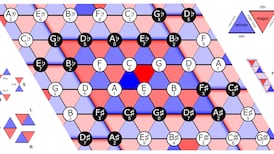What if you could get a glimpse of the funny side of what researchers do by hearing their jokes?
Next week, a handful of intrepid researchers will take to a stage in Dublin at an event called Bright Club, where they will try their hands at stand-up comedy. Their goal? To make the audience laugh, but also to get them thinking a little more about the subject matter.
This is a new way for people to mix it up with the scientific community. Clearly it is going to be a challenge for scientists to bring their work to the people in the context of improv and stand-up comedy.
“The idea is to get researchers to do a stand-up-style set about their work, and one of the rules of Bright Club is that you have to try to be funny,” says physicist and comedy improv performer Dr Jessamyn Fairfield, who is organising and compering the event.
Just as with Bright Clubs in the UK, the Dublin event will feature a mixture of researchers and professional performers. "It's like a thinking person's variety night, " says Fairfield, a postdoctoral researcher at Amber in Trinity College Dublin, which is supporting the event. "It's going to be a mix of science and humanities and social science and music: we want to cover a broad range."
The researchers-turned-comedians are being coached in advance by scientist-turned-performer Dr Niamh Shaw, who will also be taking the stage at Bright Club.
Dr David McKeown, a research engineer at University College Dublin whose work seeks to reduce potentially dangerous vibrations in rockets, will be in the spotlight with his jokes. He admits being "a little scared, terrified and anxious" about it, but is also looking forward to it.
“I’m feeling a mixture of excitement and complete terror but that is quite healthy I imagine,” says McKeown, who is no stranger to delivering public talks about his work. “If you are giving science talks you want to be entertaining, but this time there will be no slides, it will be just me and the microphone and that is scary. Also, when you give a science talk no one really expects you to be funny, but if you are doing stand-up they do.”
So will we know all about rocket science after his eight minutes of mirth? “I am going to talk about space, but it will be lighthearted; there won’t be any equations,” says McKeown. “And maybe people will learn a little bit about what I do.”
Fairfield is keen that the event attracts an audience outside the research community. “The idea is to make it less of a university outreach night and more of an entertainment night,” she says. “That will benefit both the audience and the performers; the researchers will get quite a bit out of finding funny and engaging ways to talk about their research. I’m really excited about it and I’d like this to be the first of many.”










